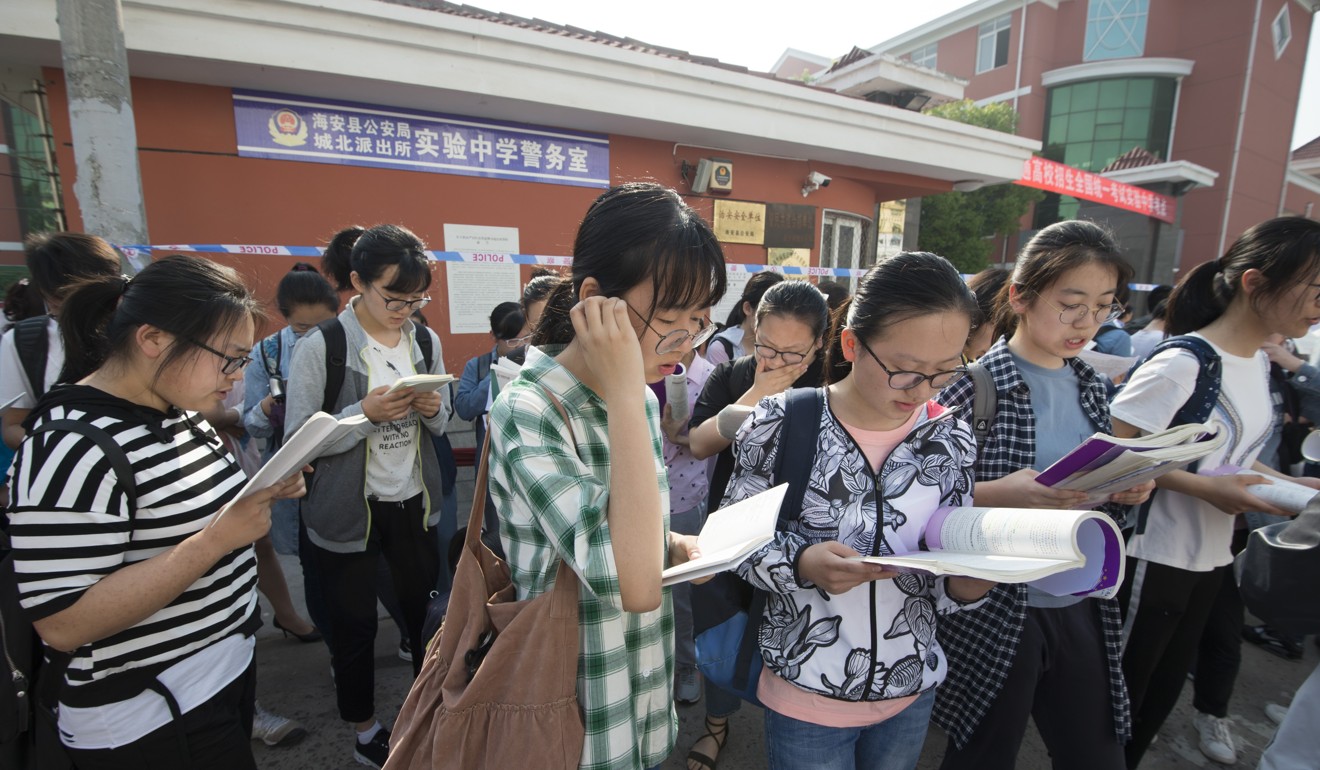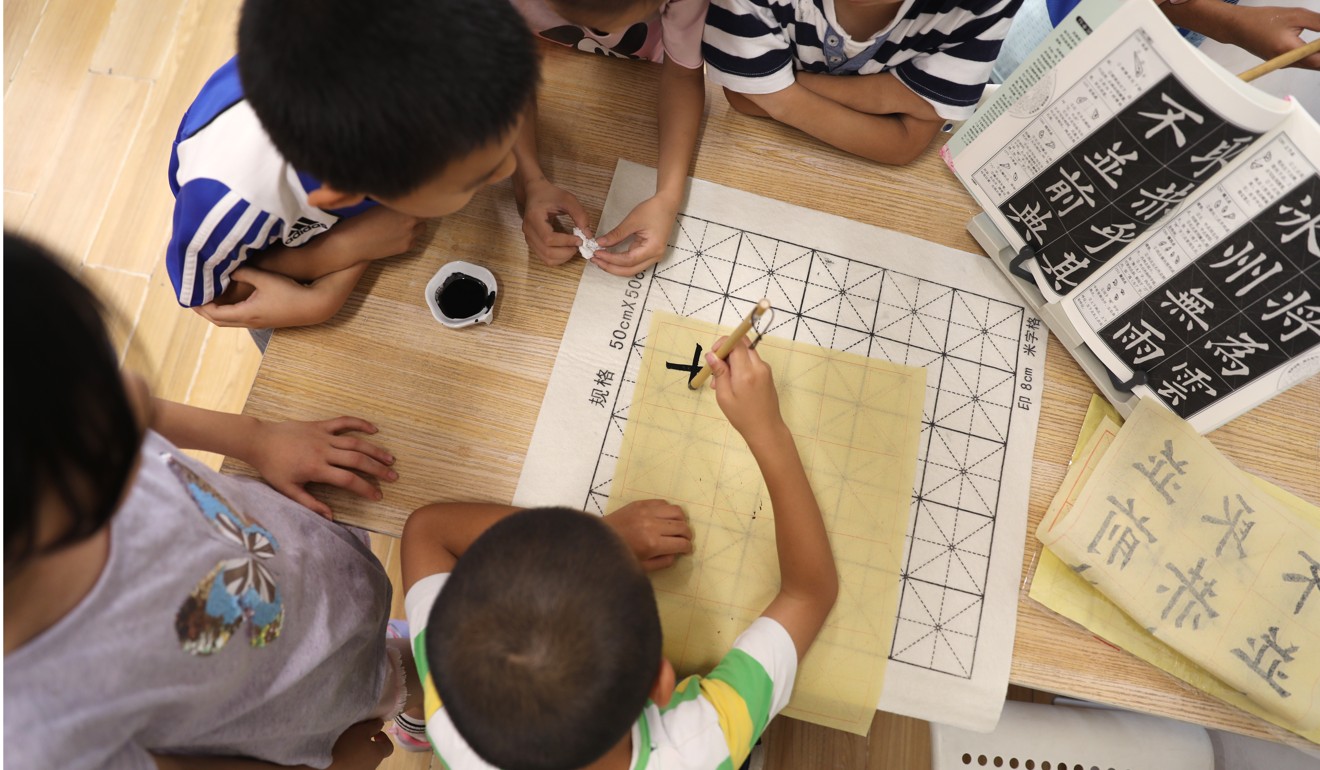
Chinese parents spend up to US$43,500 a year on after-school classes for their children
- Cramming is becoming more common among younger students, education group says
- More than 60 per cent of primary school pupils in China are tutored outside the classroom in subjects such as English, literature and maths
Chinese parents spend an average of 120,000 yuan (US$17,400) a year on extracurricular tutoring for their children – and some shell out as much as 300,000 yuan (US$43,500), a national education association says.
“Tutoring classes have risen [in popularity] against conventional schooling,” Gu Mingyuan, head of the Chinese Society of Education, which is affiliated with the Ministry of Education, told news site Jiemian.com.
“Parents send their kids to six hours of extra tutoring per week at an average cost of 120,000 yuan per year, and that can rise to 300,000 yuan per year. Parents are also feeling very helpless.”
China’s middle class spend less as they scrimp and save for their children’s education
Academic pressure in China’s education system is said to reach its peak when students are preparing for the university entrance exam in the last year of high school. But according to an annual report by the China Education 30 Forum – which Gu is part of – cramming is becoming more common among younger children.

More than 60 per cent of primary school pupils in China are tutored outside the classroom in key subjects such as English, literature and maths, according to the report released at an annual gathering of scholars, teachers, economists and business representatives on Sunday.
In Beijing and Shanghai, some 70 per cent of primary school pupils receive tutoring, the report said. In general, the older they are, the higher the proportion of students taking extra classes – and by the sixth grade, more than 40 per cent of pupils are being tutored in two subjects, the group found.
Chinese schoolchildren spend on average 50 minutes per weekday and two hours at the weekend in after-school classes, according to a 2015 survey by the China Youth and Children Research Centre.
“External tutoring agencies often use high-intensity teaching and early education models to improve students’ test-taking skills,” Tan Xiaoyu, an expert at the Shanghai Academy of Educational Sciences, told the news website.
“Parents are then swept along, trying their hardest to make sure their children are catching up.”
After-school tutoring is a fast-growing industry in China and is expected to double in size from 497 million yuan in 2016 to just over 1 billion yuan in 2021, according to a UBS report last year.
Tiger parents, don’t sacrifice happy childhoods for long-term comfort – it’s about striking a balance
By 2020, the Chinese government estimates there will be some 191 million students being tutored as increasing urbanisation and competition for the top universities drive parents to spend more disposable income on their children’s education.
But the impact of cram schools on students’ well-being prompted Beijing in February to issue guidelines advising parents to cut down on the amount of time their children spent in extra classes.
“Although [public] middle school entrance exams have been abolished, the intense competition to get into a good school has led to an overly heavy workload for students,” Gu told Jiemian.com.

The government has tried several measures over the years to reduce the academic workload of primary and middle school pupils in particular, but they have had little impact. For instance, in its school management guidelines last year the ministry said primary school pupils should have the right to sleep for 10 hours a night.
“Reducing schoolwork in the classroom has pushed educational responsibility onto parents instead,” Tan was quoted as saying.
“The competitive selection examination system still exists. Extracurricular tutoring continues to grow, and tutoring fees have become a heavy and unavoidable cost for many households.”
Chinese parents lament losing sleep over children’s homework
Zhang Ziyong, an education bureau inspector in Shandong province, said the focus on rote learning and cramming was the reason children were under so much pressure at school.
“From the 1950s onwards China began attempting to reduce the burden [of schoolwork]. But up until now the workload of primary and middle school students has not only failed to get lighter, it has in fact grown worse,” Zhang told the news website.
Nearly half of all parents surveyed for the education group’s report said the entrance exam system for schools and universities needed a complete overhaul to reduce the academic pressure on their children.
To tackle the problem, the report recommended that academic assessment should not be based solely on test results but that schools and teachers should try to promote more all-round academic development.

